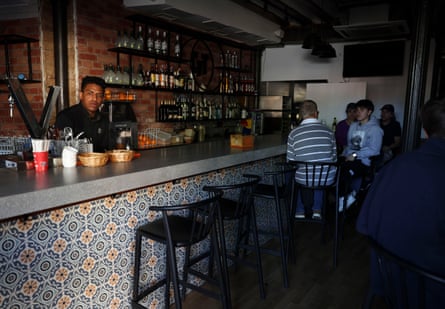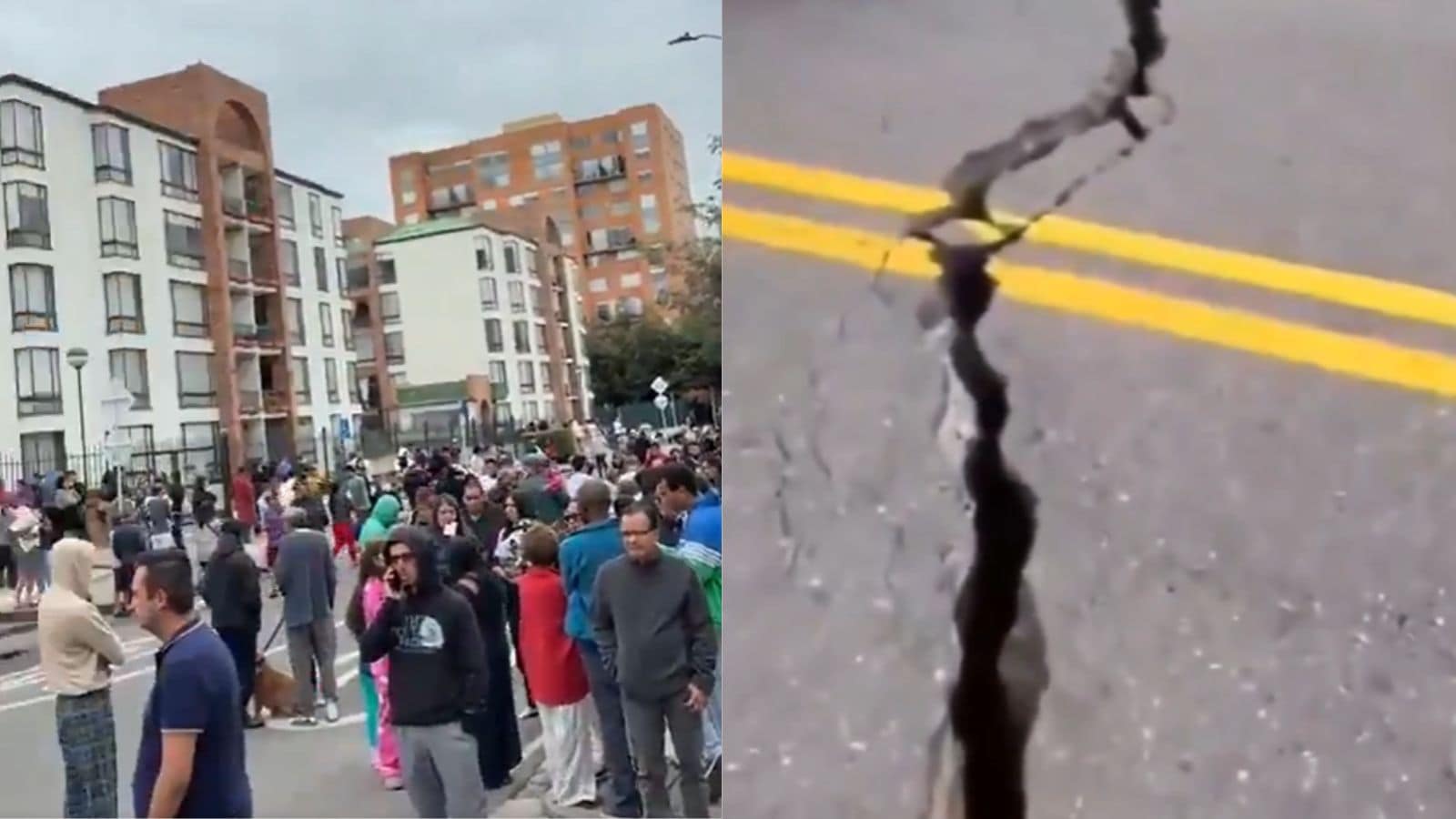Tens of millions of people across Spain and Portugal have been plunged into a huge power blackout blamed by the Portuguese operator on extreme temperature variations, leaving them without trains, metros, traffic lights, ATMs, phone connections and internet access.
People were trapped in lifts, stuck on trains, stalled in traffic and abandoned in airports. Hundreds stumbled along pitch-black metro tunnels using their phone torches; others scrambled for basics in supermarkets that could only take cash, or began long trudges home from work.
Mobile networks went down and internet access was cut as power failed at 12.33pm (1133 BST). Hospitals postponed routine operations but used generators to attend to critical cases, and while electronic banking was able to function on backup systems, most ATM screens were blank.
The mayor of Madrid, José Luis Martinez-Almeida, urged people to minimise their journeys and stay where they were, adding: “It is essential that the emergency services can circulate.” Play at the Madrid Open tennis tournament was suspended.
The Spanish government convened a crisis meeting at the national grid operator, Red Eléctrica, to discuss the outage. It was attended by the prime minister, Pedro Sánchez, who said early on Monday evening a problem in Europe’s grid was to blame but the precise cause was still unclear.

Spanish media reported that the national cybersecurity institute was investigating the possibility of a cyber-attack. However, António Costa, the European Council president and a former Portuguese prime minister, said there were “no indications of any cyber-attack”. Spain’s Teresa Ribera, a European Commission vice-president, also said there was no evidence the incident was deliberate.
By 5pm on Monday, Red Eléctrica said it had restored power to several areas and consumption was up to about 50% of the usual level, but that it could take between six and 10 hours to fully restore supply after what it called an “exceptional and totally extraordinary” incident.
The Portuguese operator, REN, said the outage was caused by a “rare atmospheric phenomenon”, with extreme temperature variations in Spain causing “anomalous oscillations” in very high-voltage lines. Red Eléctrica did not immediately respond.
REN said the phenomenon, known as “induced atmospheric vibration”, caused “synchronisation failures between the electrical systems, leading to successive disturbances across the interconnected European network”.
It said it was deploying all available resources but it was impossible to say how long it would take for the situation in Portugal to return to normal. The prime minister, Luís Montenegro, said he hoped power would be restored “in the coming hours”.

The French high-voltage operator RTE said parts of south-west France had been briefly affected but power was restored by mid-afternoon. It said it could export power to Spain “as soon as the Iberian grid has the technical capacity to receive it”.
Widespread outages are unusual in Europe. In 2003, a problem with a hydroelectric power line between Italy and Switzerland caused blackouts for about 12 hours, and in 2006 an overloaded power network in Germany caused electricity cuts across parts of the country and in France, Italy, Spain, Austria, Belgium and the Netherlands.
In scenes reminiscent of the 2003 outage that caused widespread blackouts in the US north-east, rail services across the Iberian peninsula were halted, air traffic disrupted and traffic lights extinguished. Hundreds of people had to be rescued from jammed lifts.
GraphSpain’s railway operator, Adif, said the power cut stranded trains throughout the country. The transport minister, Óscar Puente, said intercity train services would not be restored until Tuesday as the country battled to return to normal.
“We are working to ensure that, once the power supply is restored, we can resume these services, which will no longer be possible today,” Puente said. Airports were largely operating as normal using backup supplies and generators, he added.
In Madrid and other cities, traffic lights ceased to function, causing gridlock as vehicles slowed to avoid collisions, while metros were halted. Spain’s national road authority, DGT, urged motorists to avoid using the roads as much as possible.
El País newspaper posted photos and video on its website of passengers navigating darkened metro tunnels in the Spanish capital and police directing traffic on the city’s streets. Footage also showed its own reporters working by torchlight.
The Spanish health ministry said in a social media update it was in contact with regional authorities to assess the scope of the widespread blackout but reassured the public that hospitals had supplementary systems in place.
In Portugal, the outage hit the capital, Lisbon, and surrounding areas, as well as northern and southern parts of the country. Lisbon metro carriages were evacuated and ATMs and electronic payment systems cut out.

The Portuguese water supplier EPAL said water supplies could be disrupted, prompting queues to form at stores as people rushed to buy bottled water and other emergency supplies such as gas lights, generators and battery-powered radios.
A graph on Spain’s electricity network website showing demand across the country indicated a steep drop at about 12.15pm, from 27,500MW to almost 15,000MW.
The European Commission said it was in contact with Spanish and Portuguese authorities to understand the underlying cause of the blackout. The commission president, Ursula von der Leyen, said she had spoken with Sánchez.

 1 month ago
1 month ago


















